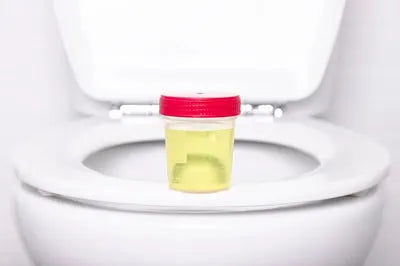Understanding urinary incontinence is the key to helping someone fight it, the right way. However, articles and journals about it are not enough to explain how adversely it can affect the quality of the person’s life. This is our attempt to make people realize what it is like to live with incontinence, by sharing some personal stories.
*Sana Thakur, a 43 year old woman, was working as a teacher in Nagpur until she was diagnosed with urinary incontinence at 39. Just like any other day, she returned home from her workplace around 4pm on a rainy September day back in 2015, about 4 hours after she noticed a urine leak. At first, she thought of it as just a minor issue, so did not pay much attention to it. But, when the episodes started to get more frequent, it left her a little worried. She got in touch with her doctor to know the cause, and found out that she has stress urinary incontinence, due to obesity. So, anytime she lifts a heavy object, laughs or sneezes suddenly, it results in urine leakage. The doctor said that her incontinence issue is not completely curable, and she must accept it as it is; she would need to manage it by incorporating the right lifestyle changes and using adult incontinence diapers.
However, this was much easier said than done...
Sana took over two months to get used to it and accept it as a reality, a part of her life now. During that period of time, she did not talk to some of her family members and friends openly about it, and found using the diapers uncomfortable, which was accompanied by a sense of embarrassment. She used to find herself getting extremely conscious about the visibility of her diapers and the incontinence episodes in public places. However, as time passed, she began to understand that her incontinence issue will never cease to exist, which changed her way of looking at the problem. Today, she works as a freelance tutor, and is totally comfortable with using adult diapers, with no shame. Besides diapers, scheduled toilet visits, bladder training and kegel exercises helped her significantly in managing her incontinence condition. She ended our chat with us saying:
*Sam Williams, a 57 years old resident of Baroda, wakes up every day at 7am to make a scheduled toilet visit and do his Kegel exercises, as he suffers from urinary incontinence. He learnt how, being irresponsible when it comes to changing diapers initially, lead to a urinary tract infection. Sam has been a diabetic patient for the last 13 years, because of which he started getting frequent incontinence episodes at the age of 52. This ultimately became a troublesome thing for him, until he started managing his urinary incontinence after a consultation with his doctor. What is perceived by him as a part of his life now, affected him immensely for a period of 5 months, as it took a long time for him to come to terms with this problem.
The doctor recommended that he use adult incontinence diapers, do bladder training and Kegel exercises, and plan his toilet visits better, to reduce the frequency of incontinence episodes. However, Sam learnt how to use diapers properly the hard way, as he got a urinary tract infection due to long hours of using the same diaper. The fluid soaked in the diapers for extended periods of time, caused a urinary tract infection on the urethra, which made incontinence even more annoying for him. He fought the infection by using natural supplements, probiotics, and drinking plenty of water at regular intervals. Once the infection was completely eradicated, he not only started changing diapers in a timely manner, but also realized how disastrous being irresponsible can be.
Sam has not gotten rid of his incontinence, but has surely managed it pretty well. Not only that, even his family members and friends have helped him normalize it over the years, by understanding his problem and helping him fight it in every way possible. He ended his discussion with us saying:
















